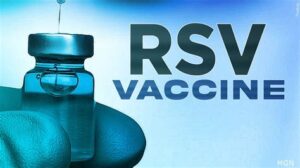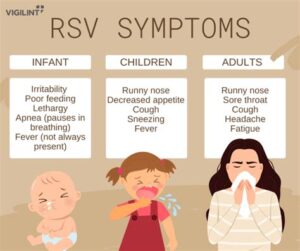Explore the safety, efficacy, and guidelines of RSV vaccination in pregnancy, along with its benefits for expectant mothers and newborns.As the medical community continues to advance in maternal and fetal health, the introduction of the RSV vaccine during pregnancy holds promising implications for both mothers and their newborns. Respiratory Syncytial Virus (RSV) poses significant risks, particularly in infants, prompting a need for effective preventative measures. This blog post explores the safety and efficacy of the RSV vaccine for pregnant women, guided by the latest recommendations from the American College of Obstetricians and Gynecologists (ACOG). We will delve into the potential benefits of immunization during pregnancy, examining how the vaccine can protect not only the mother but also her unborn child. Join us as we uncover the transformative potential of RSV vaccination in safeguarding future generations against this common yet dangerous virus.
Safety of RSV Vaccine in Pregnancy
The introduction of the RSV vaccine for pregnant women has raised important discussions about its safety and effectiveness. Respiratory Syncytial Virus (RSV) is a significant cause of respiratory illnesses in infants, and pregnant women who receive the vaccine can provide passive immunity to their newborns. Understanding the safety profile of this vaccine during pregnancy is crucial for expectant mothers and healthcare providers alike.
According to the latest ACOG guidelines, studies indicate that the RSV vaccine has been found to be safe for use during pregnancy. Clinical trials have demonstrated encouraging results showing that the vaccine does not pose risks to the mother or the developing fetus. Furthermore, the data collected surrounding the immunogenic profile of the vaccine revealed that the expected immune response in pregnant individuals is similar to that seen in the general adult population.
Maternal vaccination against RSV not only protects the mother but also provides critical protection to the newborn through the transfer of antibodies. This ensures that the baby has some level of protection against RSV infections during the first few months of life when they are most vulnerable. Overall, the integration of the RSV vaccine in pregnancy protocols rep
ACOG Guidelines for RSV Vaccination
The American College of Obstetricians and Gynecologists (ACOG) has issued comprehensive guidelines concerning the administration of the RSV vaccine during pregnancy. These guidelines aim to ensure the health and safety of both the mother and the newborn. ACOG’s recommendations are based on the latest research and clinical trials that highlight the potential benefits of the vaccine in pregnant women.
According to ACOG, the RSV vaccine is recommended for all pregnant women during the third trimester of pregnancy. This is the critical time period when antibodies are formed, providing protection to the infant during their first few months of life, which is crucial as infants are particularly vulnerable to RSV infections. The vaccine’s timing in relation to gestation helps optimize the transfer of maternal antibodies, enhancing the baby’s immunity against respiratory syncytial virus (RSV).
Additionally, ACOG emphasizes that healthcare providers should discuss recommendations regarding the RSV vaccination with their patients at each prenatal appointment. It is essential to address any concerns about the vaccine’s safety. Pregnant women should be encouraged to ask questions and make informed choices based on their health profiles and risk factors associated with RSV. This patient-centered approach aligns with ACOG’s goal of promoting optimal maternal and fetal health.
Efficacy of RSV Vaccine for Pregnant Women
The RSV vaccine has emerged as a critical preventive measure for protecting both pregnant women and their newborns from the respiratory syncytial virus (RSV). Recent studies have shown promising results regarding the efficacy of this vaccine during pregnancy, which highlights its potential role in safeguarding maternal and infant health.
According to the latest research, the RSV vaccine administered to pregnant women can lead to the production of antibodies that are transferred to the fetus. This passive immunity during pregnancy is essential because it helps protect newborns in the first few months of life, a period where they are most vulnerable to infections. Clinical trials indicate that the vaccine demonstrates high efficacy rates in preventing severe RSV disease in infants when administered during the later stages of pregnancy.
Health organizations, including the American College of Obstetricians and Gynecologists (ACOG), recommend discussing the RSV vaccination in pregnancy with healthcare providers. The vaccine’s safety profile, coupled with its effectiveness, makes it a compelling option for expecting mothers looking to ensure the best start for their babies. As further studies unfold, the potential for widespread use of the RSV vaccine could significantly reduce the incidence of RSV-related complications in newborns.
Potential Benefits of RSV Immunization
The potential benefits of RSV immunization during pregnancy are significant, both for the mother and the newborn. As respiratory syncytial virus (RSV) can lead to severe respiratory illness in infants, vaccinating pregnant women can provide crucial protection to their babies.
One of the primary advantages of RSV immunization in pregnant women is the transfer of maternal antibodies to the fetus. This passive immunity can help shield newborns from respiratory ailments in their first few months of life, a critically vulnerable period. Studies have shown that infants born to immunized mothers have a reduced risk of developing severe RSV infections, leading to fewer hospitalizations and complications.
Additionally, the emotional and psychological burdens that may accompany RSV-related hospitalizations in infants can be alleviated through effective immunization. Protecting both mothers and their babies from the risks of RSV can improve overall maternal health and wellbeing, resulting in enhanced maternal-infant bonding and reduced healthcare anxiety.
Overall, the potential benefits of RSV immunization can play a crucial role in safeguarding both mothers and their newborns against the risks associated with RSV infections.
Impact of RSV Vaccination on Newborns
Respiratory Syncytial Virus (RSV) is a significant cause of respiratory illness in infants and young children. The introduction of the RSV vaccine for pregnant women is aimed at providing crucial immunity to their newborns. By vaccinating during pregnancy, mothers can pass on antibodies to their babies, thereby potentially reducing the risk and severity of RSV infections in the early months of life.
The ACOG guidelines emphasize the importance of timing when it comes to RSV vaccination. Pregnant women are advised to receive the vaccine during the last trimester to ensure optimal antibody transfer to the fetus. This timing is critical because it allows for maximum protection for the newborn when they are most vulnerable to RSV.
Studies indicate that infants born to vaccinated mothers have higher levels of RSV-specific antibodies. This enhancement of passive immunity plays a vital role in safeguarding newborns, especially in the first few months after birth when they are at the highest risk for severe infection. The data suggest that this vaccination strategy may lead to a significant reduction in
Frequently Asked Questions
What is the RSV vaccine and why is it important during pregnancy?
The RSV vaccine is designed to protect against respiratory syncytial virus (RSV), which can cause severe respiratory infections. During pregnancy, this vaccine is important to help safeguard both the mother and the unborn child from potential complications associated with RSV.
How does the ACOG view the use of the RSV vaccine in pregnant women?
The American College of Obstetricians and Gynecologists (ACOG) supports the use of the RSV vaccine during pregnancy, particularly for women at high risk of RSV infection, as it can provide antibodies that help protect the newborn.
Are there any risks associated with receiving the RSV vaccine while pregnant?
Generally, the RSV vaccine is considered safe during pregnancy, but like any medical intervention, it can have potential risks. Pregnant women should discuss their specific situation with their healthcare provider to weigh the benefits and risks.
When is the best time during pregnancy to receive the RSV vaccine?
The optimal timing for receiving the RSV vaccine during pregnancy may depend on individual circumstances, but it is typically advised to receive it in the later stages of pregnancy to ensure that the maximum amount of antibodies are passed to the fetus.
Can the RSV vaccine prevent RSV infection in infants?
Yes, receiving the RSV vaccine during pregnancy can help provide passive immunity to the infant, decreasing their risk of severe RSV infection during the first few months of life.
How does the RSV vaccine compare to other vaccines recommended during pregnancy?
The RSV vaccine is part of a broader immunization strategy during pregnancy, akin to vaccines like flu and Tdap, which also aim to protect the mother and child from contagious diseases; however, it is specifically targeted at preventing RSV.
What should pregnant women do if they have concerns about the RSV vaccine?
Pregnant women should consult with their healthcare providers to address any concerns regarding the RSV vaccine, as they can provide personalized information and recommendations based on health history and risk factors.





